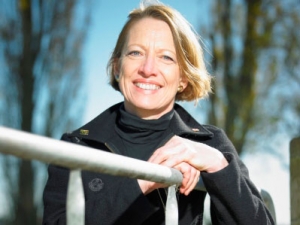The announcement that AgResearch will invest $5 million in the new Southern Dairy hub, matching the investment from DairyNZ and supporting the $1.3 million raised by farmers, has mystified AgResearch scientists.
They have been told that at least 80 people, all from science, will be made redundant because of funding shortfalls. This is on top of the losses of staff already experienced because of the Future Footprint Plan (FFP).
Because of project completions and a science funding system that makes it difficult to regain funds once lost, AgResearch is $6 million down this year. This is despite taking on more business managers to direct staff to develop research programmes in specific areas through a process of ‘roadmapping’.
The problem for research is that managers absorb considerable resources. Estimates published in Harvard Business Review indicate two people for one basic management position and over three extra per senior executive. Highly remunerated ‘business developers’ are not doing the actual work of research; they are managing the performance of the people who are the revenue generators.
In AgResearch between 2011 and 2014 there was a 14% decrease in science staff and a 25% increase in management and support positions; the annual reports give the data.
Of note is that the work any science group does at AgResearch has always been prescribed by whatever industry or government or the AgResearch senior management team, have seen as the most appropriate.
A failure in revenue generation should be sheeted home to management – but it is the science teams that are being affected.
AgResearch has said it will continue to invest where it can develop science and support capabilities. The Southland Hub is currently one of these areas. But ‘hot topics’ are susceptible to change, whereas science skills are hard won.
The case should be made that the retention of science skills should take prominence.
Of further note is that AgResearch will target opportunities for integrated farm systems, decision support tools and modelling of farm systems. These are generally computer-based initiatives which are, admittedly, usually cheaper than field research – but most rely on information which is increasingly out of date. The fact that Overseer, a widely used nutrient management tool, is calibrated for only four environments is a case in point.
The KPMG ‘Agribusiness Agenda’, released at National Fieldays this week, highlighted that New Zealand’s innovation capability is now a priority issue. It expressed oncerns that the capability to deliver the innovation required to compete globally doesn’t exist. The structure of the government-funded system, the competitive funding mechanism (whether from external agencies or within the Crown research institutes), the lack of corporate profitability in order to fund investment, and the challenges of attracting and retaining key people were all emphasised, as was underinvestment in transformational, intergenerational science.
Some of these points have been made before, some of them include buzzwords (hot topics), but the overall problem remains. Students are not studying the sciences at school because they are seen to be hard and without reward in the workplace. University graduates from New Zealand are not staying on to do higher degrees – they can earn as much after graduating from a 3- or 4-year degree course as they can with a doctorate.
The KPMG ‘Agribusiness Agenda’ suggests that “future success relies on ensuring our science system is able to support a high-value add industry”.
AgResearch’s decision to invest $5 million in Southland rather than keep science staff is following a hot topic, but the damage in staff loss is likely to have longer term impacts. Science capability is falling below critical mass.
• Jacqueline Rowarth is professor of agribusiness, The University of Waikato.



















